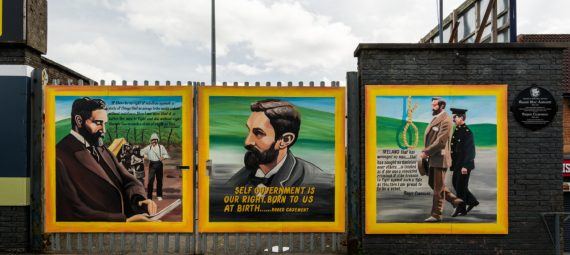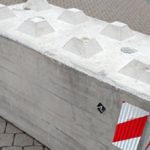DONNACHA MAGUIRE*
Sir Roger Casement, Companion of the Most Distinguished Order of Saint Michael and Saint George, British Foreign Office Consul, was tried and convicted of treason against the British King and was, on August 3rd 1916, executed by hanging.
So how does a Knight of the British Empire, a member of the Anglo-Irish Ascendency in Ireland, and a senior British diplomat, turn against all that he ever knew and believed in, and take up arms against his former King and Empire?
For me, it was the realisation of what colonialism and empire does to local populations that was the primary motivation for this abrupt and decisive shift in allegiances.
Interestingly, it was not solely the impact of British colonialism that Casement saw that convinced him of the need for Irish independence, but that of Belgian colonialism in the Congo.
Having arrived in 1890 to the Congo, Casement, like many others, believed that “European colonisation would bring moral and social progress to the continent and free its inhabitants ‘from slavery, paganism and other barbarities.” As we know now, what Casement saw on the ground profoundly disgusted him, and changed his views forever.
His damning 1904 report for the British Government into the atrocities inflicted on the Congolese people by King Leopold III’s private company changed public opinion across the world, and eventually led to the Belgian Parliament taking the King’s private fiefdom into the hands of the State as the Belgian Congo. He was inducted into the Most Distinguished Order of Saint Michael and Saint George for his services to the Crown.
Towards the end of the first decade of the 20th century, the British Foreign Office sent Casement to South America, where he was eventually promoted to the rank of Consul-General in Rio de Janeiro. Here, Casement investigated the activities of British companies, working with the support and approval of the British State, operating a very large and lucrative rubber industry. Indigenous populations were used and abused.
In 1911, Casement was made a Knight of the British Empire for his role in highlighting the abuse of native populations in South America.
Roger Casement was born in South Dublin, a son of Captain Roger Casement and Anne Jepson, both from well to do Anglo-Irish, Protestant families in 1864. Both his parents died when he was young, and Roger was raised by his father’s distant relatives in the North of Ireland, in Co. Antrim. As we can see above, he followed the tradtional career of a member of Ireland’s Anglican Ascendency – working in the British Civil Service, and ended up being well-respected by those in power in London.
While back in Ireland, Casement lobbied the very powerful MPs from the Irish Parliamentary Party (who held the balance of power in the British Parliament between the liberals and conservatives). He came into contact with a different type of Irish person for perhaps the first time as an adult. While not actively campaigning for complete independence, the IPP was determined to secure Home Rule for Ireland with an Irish parliament legislating for the people of Ireland.
However, Casement was more impressed with the smaller, but more vocal Sinn Féin party that sought complete independence for Ireland with a dual-monarchy system similar to that of the Austro-Hungarian Empire. Also, in 1905, Casement joined the Gaelic League – an organisation that sought to revive the ancient Gaelic language and promote traditional Irish culture.
Through Sinn Féin and the Gaelic League, Casement came into regular contact with exiled Irish republicans who believed that only a republic, completely free from interference by the British Empire, would suffice. Initially, these men, from the Irish Republican Brotherhood, were suspicious of Casement owing to his own career in the Empire, but they soon grew to trust him.
With the start of World War I in August 1914, the old adage of “England’s difficult is Ireland’s opportunity’ became a very real scenario. Irish republican leaders made a deal with Germany – support Irish independence and we will rebel against British rule and force Britain to fight on two fronts.
By now, Casement, having seen the British Parliament once again reject Home Rule for Ireland, became a convinced physical force republican. In October 1914, imbued with the zeal of a new convert, Casement set sail for Germany and eventually secured the following declaration from the German Government:
The Imperial Government formally declares that under no circumstances would Germany invade Ireland with a view to its conquest or the overthrow of any native institutions in that country. Should the fortune of this Great War, that was not of Germany’s seeking, ever bring in its course German troops to the shores of Ireland, they would land there not as an army of invaders to pillage and destroy but as the forces of a Government that is inspired by goodwill towards a country and people for whom Germany desires only national prosperity and national freedom.”
Casement spent the next two years in Germany seeking to recruit British POWs to return to Ireland to take up arms against the Empire – only 52 did in the end. He also worked on plans to support an uprising against British rule in India.
In spring 1916, as plans for the fateful Easter Rising were being developed, the German government agreed to supply 20,000 guns for the putitive rebellion in Ireland. As fate would have it, the British intercepted the ships and the Captain scuttled the ship before they could be captured.
Casement, determined to return to Ireland, set sail on a German U-boat, and landed at Banna Strand, Co. Kerry in the South West of the country just three days before the Easter Rising commenced on Easter Monday, 1916. Suffering from malaria, and too weak to travel, Casement was eventually arrested by a local police constable and charged with High Treason, Sabotage and Espionage against the Crown.
His trial which place some months in London after the failed Easter Rising, and following the execution of the 16 leaders had a pre-ordained outcome. The British had to make an example of Casement and send a message that anyone who goes against the Crown, even a Knight of the Empire, would be punished most severely.
The prosecution leaked many of Casement’s private diaries, now known as the Black Diaries, where Casement’s apparent homosexuality was used to further damage his reputation.
Convicted under an archaic piece of legislation from the 14th century, the 1351 Treason Act, Casement was afforded an opportunity to address the court.
In what became known as his ‘Speech from the Dock’, Casement systematically pulled apart the British government’s right to try him on the basis that the Act did not, and does not apply to Irish citizens, as to commit treason against the Crown would imply that one had to be loyal at some point.
Despite his efforts, Casement was executed by hanging on August 3rd 1916 and buried in quicklime in Pentonville Prison, the last of the 1916 Leaders to give their lives for Irish freedom.
In 1965, Casement’s remains were finally repatriated to the land of his birth, and of his loyalty, where he was given a full State funeral in the presence of President Eamon de Valera, the last surviving Commandant of the 1916 Easter Rising.
In the decades that followed the Black Diaries, and Casement’s supposed homosexuality, were seen as black marks against his character. Thankfully, the last 20 years have been a social revolution in Ireland, and now, new generations are able to look back at Casement’s life and legacy with pride. The Irish LGBTQI community now have a leader who was as pivotal to Irish freedom as those we have proudly commemorated for over a century.
Donnacha Maguire is a member of Fianna Fáil – the Republican Party
and works in the European Party for a liberal MEP.
Author Profile
Latest entries
Post Disclaimer
The opinions expressed by the author of this post do not necessarily represent the opinions and policies of ELfR.






This is a really good blog. I can understand Casement’s sentiments entirely. I am Scottish, married to a German. I was raised to identify as British. Since brexit, I can no longer remain loyal to both unions UK and EU if their rules will diverge. Brexit is an undemocratic act by the UK leaders for their own selfish purposes and does not benefit the people. Therefore I have chosen to remain with the EU. I now identify as Scottish European and not british and I campaign for Scotland to be fully independent of the UK and I will disobey any new UK rules which are against EU regulations.